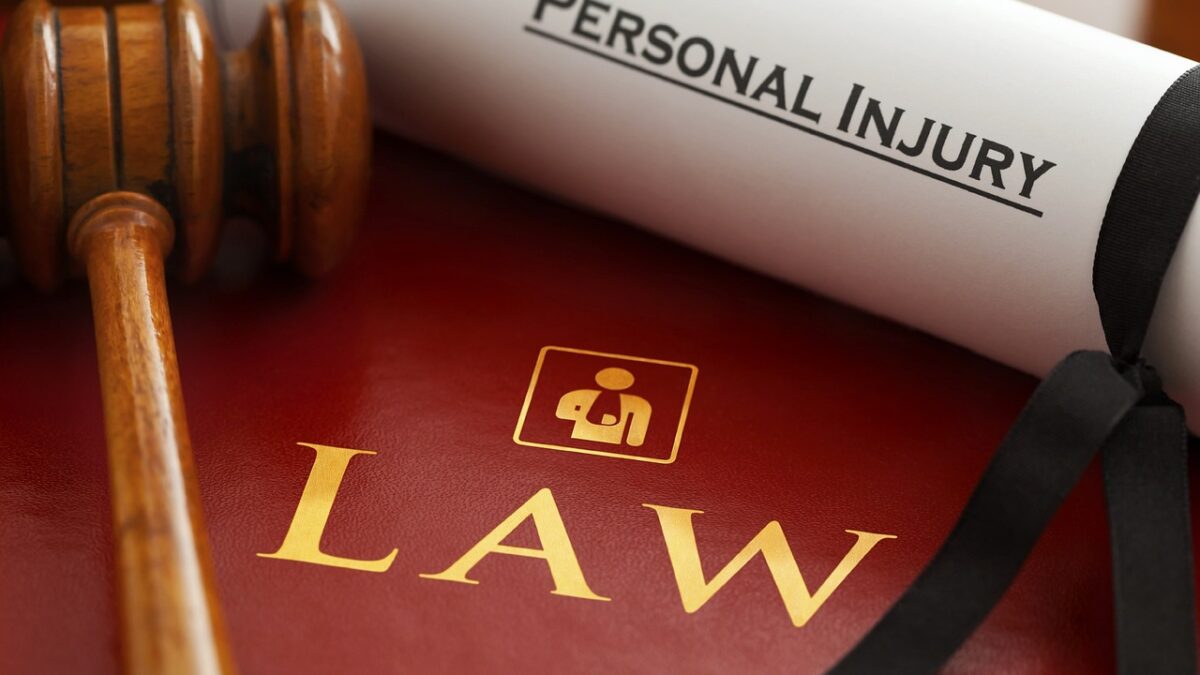
Working For The Family Business
December 16, 2023
The Future Lawyer Weekly Briefing – W/C 18th December 2023
December 18, 2023Article written by Olga Kyriakoudi
Personal injury litigation constitutes a complex legal landscape where the pursuit of justice requires not only legal expertise but also a nuanced understanding of ethical considerations and the ability to navigate potential risks. This article aims to delve deeply into the multifaceted aspects of personal injury litigation, exploring the pivotal role of training in this field, mitigating risk factors, and adhering to ethical standards. By examining the litigation fast track procedure, ethical considerations outlined by the Solicitors Regulation Authority (SRA), and the necessity of staff training and robust office systems, this comprehensive analysis seeks to illuminate the interconnected nature of these elements in shaping the trajectory of personal injury cases.
Training in the Litigation Fast Track Procedure
The early stages of personal injury litigation often involve the fast-track procedure for civil claims. Training programmes that provide a thorough understanding of this procedure offer legal professionals valuable context for efficient case management. The fast-track procedure, designed to expedite claims of moderate value, necessitates a strategic approach to investigation and preparation. By engaging in training courses tailored to managing litigants in person, legal practitioners enhance their ability to navigate interactions and minimise challenges that may arise when dealing with individuals representing themselves. Expanding on this, training modules could incorporate simulated scenarios that mimic real-world challenges, providing lawyers with practical experience in handling litigants in person. This hands-on approach ensures that legal professionals not only grasp the theoretical aspects of the fast-track procedure but also develop the practical skills needed to navigate the unique challenges associated with personal injury claims.
Additionally, training should encompass technological advancements relevant to the fast-track procedure. Familiarity with e-discovery platforms, virtual court proceedings, and other technological tools enhances the efficiency of case management, contributing to more streamlined and effective litigation.
Risk Factors in Personal Injury Claims
Mitigating risk is a paramount concern in personal injury litigation. Legal practitioners must be well-versed in identifying and managing various risk factors to ensure the success of their cases and uphold the integrity of the legal profession. The SRA Standards and Regulations serve as a comprehensive guide, outlining principles that legal professionals must adhere to in their practice. A deeper exploration of risk factors reveals the complexities associated with third-party instructions, settlements without proper medical evidence, and the potential for misleading the court. Training programmes should not only highlight these risk factors but also provide practical strategies for legal professionals to navigate and mitigate these risks effectively. For instance, a dedicated segment of training could focus on the intricacies of settlement negotiations, emphasising the importance of obtaining
comprehensive medical evidence before reaching an agreement. Simulated negotiation exercises could be incorporated into training, allowing lawyers to refine their negotiation skills in a controlled environment.
Moreover, training should address the ethical considerations tied to risk management. Legal professionals need to understand the delicate balance between zealous advocacy for their clients and the broader ethical obligations to the court and the legal system. Case studies and real-world examples can be integrated into training programmes to illustrate the consequences of ethical lapses in personal injury litigation.
Ethical Considerations and Professional Conduct
The ethical considerations outlined by the SRA Standards and Regulations form the bedrock of professional conduct in personal injury litigation. Each principle, from upholding the rule of law to acting in the best interests of clients, underscores the ethical obligations inherent in this field. Expanding on Principle 7 of SRA, which emphasises acting in the best interests of each client, legal practitioners must recognise the importance of clear instructions,
authority confirmation, and ethical considerations in personal injury matters. A comprehensive training programme should delve into the practical application of these principles, providing legal professionals with the tools needed to navigate ethical dilemmas effectively. Training could incorporate case simulations that challenge lawyers to make
decisions based on ethical considerations, fostering a deeper understanding of how these principles manifest in real-world scenarios. Additionally, discussions on recent cases law and ethical challenges faced by practitioners could be integrated to ensure that training remain relevant and reflective of the evolving legal landscape.
Compliance with SRA Standards and Regulations
The principles outlined by the SRA Standards and Regulations provide a roadmap for legal practitioners to uphold ethical standards in personal injury litigation. A thorough exploration of these principles such as acting with integrity and maintaining independence is essential for lawyers navigating the intricate terrain of personal injury cases. Expanding on these principles, legal professionals must understand the practical implications of acting in the
best interests of each client. This involves clear instructions, proper authority confirmation, and adherence to ethical standards throughout the retainer. A training programme that delves into the nuances of client interactions, authorisation processes, and ethical decision-making ensures that legal practitioners can align their actions with these principles effectively. Moreover, a comprehensive training programme should include a segment on the duty to comply with relevant parts of the code of conduct for solicitors, Registered European Lawyers (RELs), and Registered Foreign Lawyers (RFLs), as well as the code of conduct for firms. Understanding the interconnected nature of these codes ensure that legal professionals have a holistic understanding of their obligations to clients, the court, and the legal profession.
Staff Training and Office Systems
Efficient office systems and well-trained staff are instrumental in ensuring the competence and timely delivery of legal services in personal injury litigation. Staff training programmes should focus on developing the skills necessary for a proper standard of service to clients. Regular reviews of staff training ensure that knowledge and skills are continually updated to align with the evolving nature of personal injury litigation. Training should encompass the
effective triaging of matters by experienced professionals who understand the litigation process. Systems that allow for the diarising of limitation periods and court timetables are crucial components of successful office systems. Legal professionals should be trained to navigate these systems seamlessly to avoid oversights that could lead to missed deadlines or inadequate case preparation. Furthermore, staff training programmes should emphasise the importance of supervision, particularly in overseeing the work of fee earners and case workers. This ensures that support and expertise are available to those handling personal injury cases, fostering a collaborative and knowledgeable work environment. Taking on files from another firm introduces a unique set of challenges. Due diligence on acquired files is imperative, and staff training should include guidance on evaluating files effectively. Training programmes can provide insights into identifying urgent matters, assessing the necessary skills and experience, and allocating resources appropriately.
In conclusion, personal injury litigation is a dynamic legal arena where the convergence of legal expertise, risk mitigation, and ethical conduct is essential for success. A robust training programme serves as the cornerstone for legal professionals, equipping them with the skills and knowledge needed to navigate the complexities of the litigation fast track procedure, mitigate risk factors, adhere to ethical considerations, and maintain efficient office systems. By expanding on the topics of training, risk mitigation, and ethical considerations, this article has provided a comprehensive analysis of the interconnected nature of these elements.





